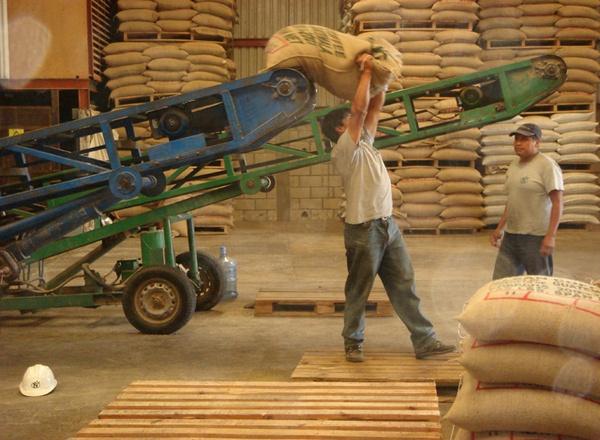
Integrated resource management based on principles of sustainability is touted as a means of addressing numerous and varied challenges. Ecosystems and natural resource degradation, greenhouse gas emissions, and issues of social and economic justice are prominent among them. UTZ Certified has been putting these claims to the test with its Energy from Coffee Wastewater project.
Launched in 2010 in partnership with coffee farmers and communities in Central America, the Energy from Coffee Wastewater project proves that it's possible to generate renewable energy, tackle climate change, protect water resources, and raise locals' health and living standards at the same time.
Custom-built coffee wastewater and solid waste treatment systems have been installed at eight coffee farms in Nicaragua, 10 in Honduras and one in Guatemala as part of the project. The positive impact on over 5,000 people living in these communities has been substantial enough for UTZ Certified to reproduce the initiative in other countries.
The benefits of sustainable, integrated energy-water resource design
Zooming in on the agricultural sector, UTZ's research highlights the need for less wasteful, more sustainable and integrated energy and water resource planning and management.
Latin American countries produce 70 percent of the world's coffee, yet hold just 31 percent of the world's freshwater resources, UTZ notes. And while it takes some 140 liters of water to produce just one cup of coffee, just 1 percent of our planet's freshwater resources are available for human consumption. Moreover, over 70 percent of the water used in Latin America is returned to streams, lakes and rivers untreated -- jeopardizing drinking water supplies.
Growing coffee requires lots of water and results in the release of large amounts of untreated wastewater into waterways. All that coffee wastewater takes a toll on aquatic plants and animals, as well as downstream communities and eventually, coastal ocean waters.
Compounding the problem, the high-toxicity organic waste that comes with wastewater from coffee-growing taints local soils and produces methane -- a greenhouse gas that, though shorter-lived, is much more potent than carbon dioxide.
Sustainable farming, energy and water
UTZ's Energy from Coffee Wastewater project tackles each of these issues by taking a sustainable, holistic and integrated approach to resolving them. As UTZ elaborates, this entails:
- Treatment of essentially all water used in coffee processing;
- Over 50 percent less water used during coffee processing;
- Generation of significant amounts of biogas that's used to power households and coffee mills; and
- Prevention of the release of greenhouse gas emissions into the atmosphere.
Han De Groot, UTZ Certified's executive director, had this to say:
“Coffee production is only environmentally sustainable when water is used efficiently and polluted water from the wet-mill process is treated. Local ecosystems do not have the capacity to clean the large amounts of contaminated fluids. Rural communities and coffee production depend intrinsically on a ready supply of fresh water. So if we want to talk about coffee produced in a sustainable manner then wastewater must be treated when released into the environment."
Moving ahead with its plans to replicate its Central America Energy from Coffee Wastewater project in other countries, UTZ has launched projects in Brazil and Peru. It is also working to attract additional funding to launch projects in Africa and Asia.
*Image credits: UTZ Certified

An experienced, independent journalist, editor and researcher, Andrew has crisscrossed the globe while reporting on sustainability, corporate social responsibility, social and environmental entrepreneurship, renewable energy, energy efficiency and clean technology. He studied geology at CU, Boulder, has an MBA in finance from Pace University, and completed a certificate program in international governance for biodiversity at UN University in Japan.














